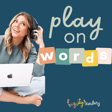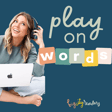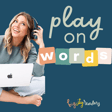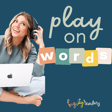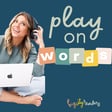
Ep. 54 When Do I Start Correcting My Child's Spelling?
In this solo episode, Miss Beth from Big City Readers answers parent question "what do I say when my child asks if this right and when do I start correcting their spelling?"
We explore how to support children, especially perfectionists, when they ask, "Is this right?" while using inventive spelling in their writing. We’ll dive into how to encourage confidence, focus on the learning process, and promote a growth mindset instead of emphasizing perfection.
- What is Inventive Spelling? A natural part of early writing development where children use the sounds they know to spell words and why it’s important to let kids experiment with language without worrying about correctness at first.
- Challenges for Perfectionist KidsPerfectionists may fear making mistakes or need constant validation and how focusing too much on being "right" can prevent them from growing as writers and thinkers.
- How to Respond When They Ask, "Is This Right?"
Tips for positive responses that encourage learning over perfection:Praise their effort and creativity and how asking guiding questions to help them think through their spelling will help.
Reframing mistakes as part of the learning process. - Encouraging a Growth Mindset in Writing How to use growth mindset language: “You’re getting better every time you try!” or "You haven't learned that YET."
Reinforce that mistakes are part of learning and that every attempt is progress.
Takeaways for Parents and Educators:
- Focus on effort, process, and creativity, rather than perfection.
- Create a supportive environment that builds confidence in writing.
- Celebrate small wins and encourage kids to keep trying without fear of making mistakes.
If you enjoyed this episode, don’t forget to subscribe and leave a review! Share your own experiences with perfectionist kids or ask questions for future episodes. Stay tuned for more tips on nurturing confident readers and writers!
Courses mentioned in this episode:
Writing and Drawing (heavy mindset focus) for preschool and kindergarten
Spelling Rules for second and third grade
